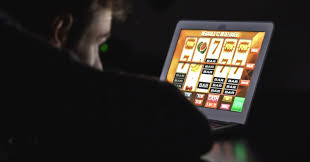Casinos offer a thrilling array of games that combine luck, skill, and strategy. Among the most exciting and iconic options are table games, which range from blackjack to baccarat, roulette, craps, and poker. These games are typically played on large, felt-covered tables with multiple players, dealers, and various betting options, making them a central feature of any casino floor.
For beginners, navigating the world of casino table games can be overwhelming. But with a little knowledge and a good sense of the basics, you can quickly become comfortable and confident at the table. In this guide, we’ll walk you through the most popular table games, key terminology, and tips to get you started on your casino adventure in 2024.
1. Understanding the Basics of Table Games
Before diving into specific games, it’s important to understand a few general rules and tips that apply to all casino table games:
- Etiquette: Casino table games often have specific rules of conduct, such as no touching the cards once they are dealt or no leaning on the table. Always be polite to dealers and other players, and familiarize yourself with the rules of the game you’re playing.
- Betting Chips: Most table games are played with chips rather than cash. You will exchange your money for chips at the casino cashier or at the table itself. These chips represent your stake in the game.
- House Edge: Every table game has a “house edge,” which is the percentage advantage the casino has over the player. Games like blackjack and poker can have a lower house edge if you play strategically, while games like roulette and baccarat typically offer a higher house edge.
2. Popular Table Games in Casinos
A. Blackjack: The King of Card Games
Blackjack is one of the most popular and beginner-friendly table games in casinos. The objective is simple: to get a hand value as close to 21 as possible without going over, while beating the dealer’s hand.
- Card Values: In blackjack, number cards (2-10) are worth their face value, face cards (Jack, Queen, King) are worth 10, and Aces can be worth either 1 or 11, depending on what benefits your hand.
- Gameplay: Players are dealt two cards and have the option to “hit” (take another card) or “stand” (keep their current hand). You can also “double down” (double your bet for one additional card) or “split” (split a pair into two separate hands).
- Dealer’s Role: The dealer plays according to strict rules. The dealer must hit until they reach 17 and stand on 17 or higher.
- Tips for Beginners:
- Always stand on 17 or higher.
- Use basic strategy charts to know the best decision based on your hand and the dealer’s upcard.
- Remember, the house edge in blackjack is lower than most other table games if you play strategically.
B. Roulette: The Spin of Fortune
Roulette is a classic casino game known for its simple yet thrilling gameplay. The game consists of a spinning wheel with 37 (European version) or 38 (American version) numbered pockets, along with a small ball that is thrown onto the wheel. Players place bets on where the ball will land.
- Types of Bets: There are inside bets (bets placed on specific numbers or small groups of numbers) and outside bets (bets placed on larger groups, such as red/black, odd/even, or high/low). Inside bets offer higher payouts but lower odds, while outside bets offer lower payouts but better odds.
- Tips for Beginners:
- Stick to outside bets (like red/black or odd/even) if you’re looking for better odds.
- Be cautious of the American roulette wheel, which has an additional “00” pocket, giving it a higher house edge than European roulette.
C. Baccarat: The Game of High Rollers
Baccarat is a fast-paced card game often associated with high rollers and luxury casinos. The objective is to bet on which hand, the player’s or the banker’s, will come closest to a total of 9.
- Card Values: Number cards 2-9 are worth their face value, 10s and face cards (Jack, Queen, King) are worth 0, and Aces are worth 1.
- Gameplay: Both the player and the banker are dealt two cards, and the goal is to have a total closest to 9. If the sum of the two cards is greater than 9, the second digit of the total is used (e.g., 7 + 6 = 13, so the total is 3). In certain cases, a third card may be dealt according to specific rules.
- Betting: Players can bet on the player hand, banker hand, or a tie between the two. The banker hand usually has a slightly better chance of winning, but the casino charges a 5% commission on winning banker bets.
- Tips for Beginners:
- Bet on the banker for the best odds, but be aware of the 5% commission.
- Avoid betting on a tie as the payout is high but the odds are not favorable.
D. Craps: The Fast-Paced Dice Game
Craps is a lively dice game with many betting options, often creating a lot of energy at the casino table. Players bet on the outcome of the roll or a series of rolls of two dice.
- Basic Gameplay: In a typical round, the shooter (the person rolling the dice) must first establish a come-out roll. The goal is to roll a 7 or 11 for a natural win, or a 2, 3, or 12 for a crap (loss). Any other result sets a point, and the shooter must try to roll that point number again before rolling a 7.
- Betting Options: Craps has numerous betting options, including pass line bets, don’t pass line bets, come bets, and place bets. The pass line bet is one of the simplest and best bets for beginners.
- Tips for Beginners:
- Start with the pass line bet or the don’t pass line bet for straightforward, favorable odds.
- Avoid complex prop bets unless you’re familiar with the game.
E. Poker: The Ultimate Card Game
Poker is a game of skill, strategy, and psychology. There are several variations, including Texas Hold’em, Omaha, and Seven-Card Stud, but the basic goal remains the same: form the best five-card hand to win the pot.
- Gameplay: Players are dealt cards and bet in rounds. In Texas Hold’em, for example, players are given two hole cards and share five community cards. The goal is to make the best possible five-card hand from the hole cards and community cards.
- Betting: Poker involves betting rounds, where players can check, bet, raise, or fold. Betting continues until all players have either folded or placed equal bets in the pot.
- Tips for Beginners:
- Learn the hand rankings (e.g., Royal Flush, Straight, Full House, etc.) to know what beats what.
- Play tight and aggressive—only bet with strong hands and know when to fold.
3. Essential Tips for Beginners at Casino Tables
- Start Slow: If you’re new, it’s better to start with low-stakes games and learn the rules without risking too much money.
- Know the Odds: Understand the odds and house edge for each game. Some games, like blackjack and poker, offer a better chance of winning with strategy, while others, like roulette, are entirely based on chance.
- Practice Online: Many online casinos offer free versions of their table games, which allow you to practice before stepping into a physical casino.
- Set a Budget: Always set a budget before you start playing. It’s easy to get caught up in the excitement of the game, but responsible gambling is key to ensuring a fun experience.
Conclusion
Table games are a core part of the casino experience, offering a mix of skill, strategy, and luck. Whether you’re drawn to the strategic play of blackjack, the excitement of roulette, or the thrill of craps, there’s a table game for every type of player. By understanding the basics, familiarizing yourself with the rules, and practicing good betting habits, you can enhance your enjoyment and increase your chances of success. So, the next time you walk into a casino, don’t hesitate to sit down at the table and try your hand—your beginner’s journey is just beginning!



